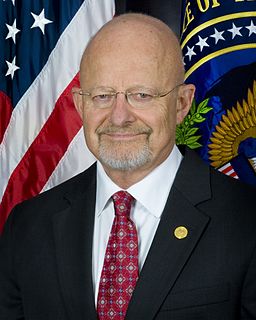A Quote by James Comey
An element of virtually every national security threat and crime problem the FBI faces is cyber-based or facilitated. We face sophisticated cyber threats from state-sponsored hackers, hackers for hire, organized cyber syndicates, and terrorists.
Related Quotes
We face cyber threats from state-sponsored hackers, hackers for hire, global cyber syndicates, and terrorists. They seek our state secrets, our trade secrets, our technology, and our ideas - things of incredible value to all of us. They seek to strike our critical infrastructure and to harm our economy.
The FBI has built up substantial expertise to address cyber threats, both in the homeland and overseas. Here at home, the FBI serves as the executive agent for the National Cyber Investigative Joint Task Force (NCIJTF), which joins together 19 intelligence, law enforcement, and military agencies to coordinate cyber threat investigations.
My view is that the cyber threat is bigger than any one government agency - or even the government itself. But the FBI brings a rare combination of scope and scale, experience, and tools to the mix. We investigate criminal activity like intrusions and cyber attacks, but we also investigate national security threats like foreign influence.
Today is just to the beginning of a long and overdue national discussion on how to protect ourselves from modern cyber crime and evolving national security threats and how to develop the cyber offense strategies necessary to gain a critical security edge in the 21st century. We need the edge, and ideally, a big one.
The problem, of course, is that the vacuum left by Younis Tsouli is quickly being filled by a larger, anonymous group of new cyber terrorists who are competing to follow in his legacy. He has become the inspiration for a second generation of "cyber terrorists" who are studying and learning from his mistakes.































